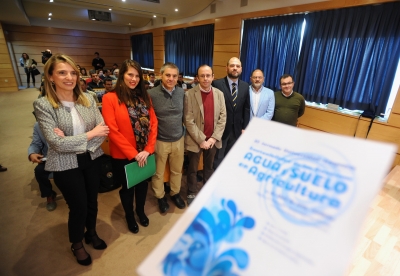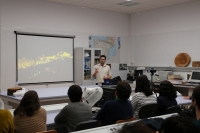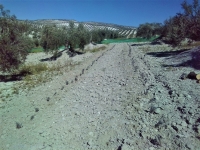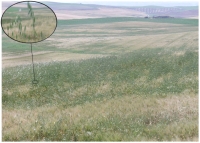Expertos alertan sobre el riesgo de desaparición de variedades históricas de la vid
Escrito por UCC+IUn grupo internacional de investigadores reivindica la urgente creación de un banco de semillas para su conservación
Hace más de diez siglos, al-Andalus destacaba en el cultivo de la vid con una gran diversidad de paisajes y variedades genéticas como la de Moscatel, Jaén, Layrén, Corazón de Cabrito o Teta de Vaca, existentes aún en la actualidad, algunas de las cuales están en serio peligro de desaparecer.
Las nuevas técnicas de reutilización del agua protagonizan la XX Jornada Universidad-Empresa
Escrito por UCC+ICon el título de ‘Sostenibilidad de los recursos agua y suelo en agricultura’, la jornada han contado con la presencia de reconocidos investigadores universitarios y de directores de empresas del sector de la agricultura
Analizan los efectos del cambio global en los anillos de crecimiento de los árboles
Escrito por UCC+iEl investigador postdoctoral en Harvard Rubén D. Manzanedo abre el ciclo sobre selvicultura y ecología forestal frente al cambio global en la UCO
Reconstruyen el transcriptoma de la encina, un paso clave para entender su biología
Escrito por UCC+iEl lavandín tiñe de morado las calles del olivar andaluz
Escrito por UCC+iEl equipo cordobés del proyecto europeo de diversificación de cultivos Diverfarming siembra lavandín entre las calles del olivar
Predicen el crecimiento de una mala hierba del trigo para reducir el uso de herbicidas
Escrito por UCC+iEl estudio se centra en la ‘Avena Loca’ y se basa en la agricultura de precisión y el uso de imágenes multiespectrales






